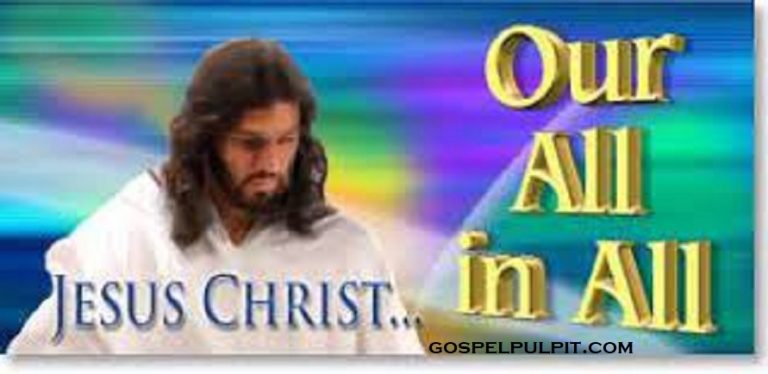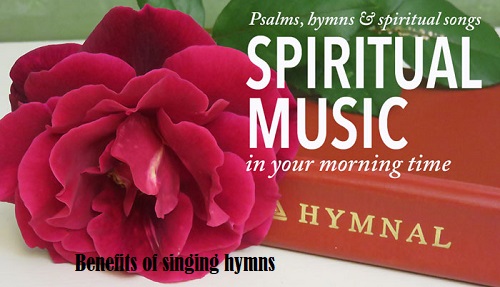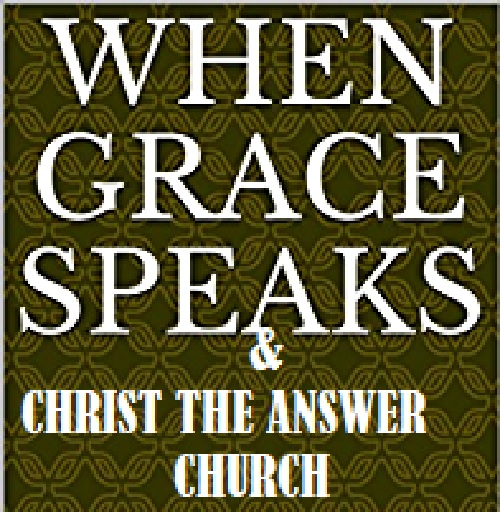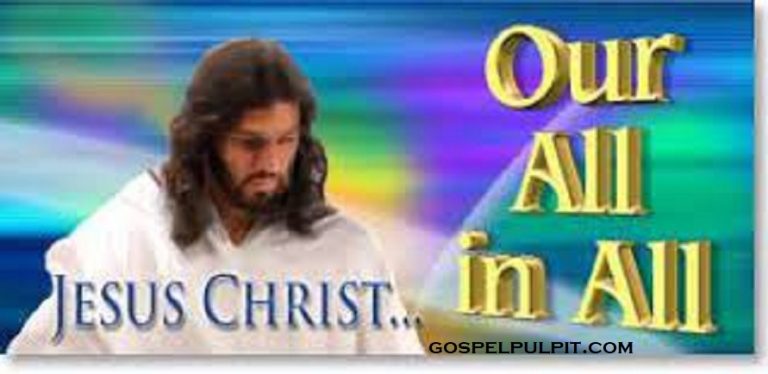How to use hymns to worship God – Hymns are an essential part of Christian worship and have been for centuries. These songs of praise, gratitude, and devotion have the power to move the spirit and connect us to God in a profound way. Whether you are in a church service, singing with a group, or simply reflecting on your own, hymns can be a beautiful and meaningful way to express your love for God. In this article, we will explore how to use hymns to worship God and deepen your spiritual practice. From understanding the history of hymns to incorporating them into your personal worship, we will cover everything you need to know to make the most of this powerful tool. So, read more about How to use hymns to worship God.
Furthermore on How to use hymns to worship God – Traditional hymns are praise and worship church hymns used in church services to praise and worship God. Therefore, in this post, we present to you a list of traditional and church hymns that have endured for ages. They are the most popular and uplifting hymns.
The focus of this post:
Time is going and modernization is changing things including these traditional hymns. In fact, many organizations are now coining their own worship hymn which is also good. But, then, the impact is that the use of these traditional hymns is being minimized. This post tends to bring to our remembrance these hymns and their usages again. Please, read on.
Throughout history, hymns have played a significant role in Christian worship. These timeless songs have been passed down from generation to generation and continue to be sung in churches and other religious settings all over the world. Here is a list of traditional and church hymns that have endured for ages:
- Amazing Grace – This hymn was written by John Newton in the late 1700s and has become one of the most popular and beloved hymns of all time. Its simple melody and powerful lyrics about God’s grace and redemption have resonated with people for centuries. This is How to use hymns to worship God.
- Holy, Holy, Holy – Written by Reginald Heber in 1826, this hymn is a celebration of the Trinity and has been a staple in Christian worship for over 150 years. It’s soaring melody and majestic lyrics inspire awe and wonder in those who sing it.
- It Is Well With My Soul – This hymn, written by Horatio Spafford in the late 1800s, is a testament to the power of faith in the midst of tragedy. Its comforting melody and reassuring lyrics have brought hope and peace to countless people over the years.
- How Great Thou Art – This hymn, originally a Swedish folk song, was translated into English in the early 1900s and has since become one of the most beloved hymns of all time. Its grand melody and exultant lyrics are a tribute to the majesty and greatness of God. This is How to use hymns to worship God.
More on the Post Focus:
- Blessed Assurance – This hymn, written by Fanny Crosby in the late 1800s, is a celebration of the believer’s assurance of salvation. Its joyful melody and uplifting lyrics have been a source of comfort and encouragement to countless Christians over the years.
- Be Thou My Vision – This ancient Irish hymn, dating back to the 8th century, is a prayer for God’s guidance and protection. It is haunting melody and poetic lyrics have captured the hearts of Christians for over a thousand years. And, this is How to use hymns to worship God.
These are just a few examples of the many traditional and church hymns that have endured for ages. Each one has a unique history and story behind it, and each one has touched the hearts and souls of countless believers over the years.
Related Hymnals:
As a matter of fact, these hymns used to worship God in churches are mostly traditional hymns that are enlisted in the following hymnals.
- Baptist Hymnal
- The English Hymnal
- New English Hymnal
- Seventh-day Adventist Hymnal
- Lutheran Hymnal
- Anglican Ancient and Modern Hymns
- The United Methodist Hymnal
Some Hymns of Praise on How to use hymns to worship God.
Do you remember some of the praise hymns of yesteryears? Look; we have some of them here. So, check out the list below.
- Amazing Grace
- How Great Thou Art
- Blessed Assurance
- Be Thou My Vision
- Abide with Me
- Crown Him with Many Crowns
- How Great Thou Art
- In Christ Alone
- Be Still, For The Presence Of The Lord
- Dear Lord And Father Of Mankind
- And Can It Be
More hymns here!
- Guide Me, O Thou Great Redeemer/Jehova
- Make Me A Channel Of Your Peace
- The Day Thou Gavest, Lord, Is EndedJerusalem
- Great Is Thy Faithfulness
- Shine Jesus Shine (Lord, The Light Of Your Love Is Shining)
- Love Divine, All Love Excelling
- Be Thou My Vision
- I Vow To Thee My Country
- When I Survey the Wondrous Cross
- What A Friend We Have In Jesus.
Do you still remember them? How do you feel singing any of them even in your closet? That’s good my dear. They help to build one’s faith in Christ. That is How to use hymns to worship God.
Related Searches for How to use hymns to Worship God
Furthermore, here are some of the searches we made to help you benefit from this post. Can you search our Webpages for these related posts? Just use our search button at the top of this page.
- What is the Bible saying about Music
- How do I benefit from hymns?
- What is the importance of worship songs?
- How do we use Psalms to worship God?
- What we learn from hymns
- How my faith grows through praise worship.
- The use of classical music is identified in worship services.
- What is a spiritual song?
- Can we worship with music?
- How does music help you pray better and draw closer to God?
- This is how music helps Christians get closer to God.
The traditional program of singing and music in church services:
As a matter of fact, this is common with the protestant churches. Therefore, in most of their service programs, there is significant time given to the singing of songs and hymns.
One important attribute of this traditional singing is that it helps to unite the congregation. In fact, it gives the members a common purpose. And, that is How to use hymns to worship God.
That was why St. Paul in the New Testament points to the importance of singing. And so he writes in Colossians 3:16;
” Let the message of Christ dwell among you richly. As you teach and admonish one another with all wisdom through psalms, hymns, and songs from the Spirit. Singing to God with gratitude in your hearts”.
The importance of hymn singing:
As a matter of fact, hymn singing is important in a number of ways:
Teaching on How to use hymns to worship God.
This is true. Because Christian songs and hymns reveal the truths of what they are signing in a God-man relationship. And that continues to teach them more about God.
Admonishing:
Again, songs and hymns contain notable Christian virtues that help Christians correct one another. These are embedded in the words of the songs which make them examine their lives against the words they sing.
Praising:
In fact, songs and hymns help Christians to worship God right. That is one way to thank Him for the good things He has done for them.
Praise Worship Prayers:
In that sited or standing place, can you raise your hands and praise God, saying;
- My Lord and my Father, I adore you.
- My Father, my Father, I praise your name above all other names!
- Oh God! I thank you for your power in my life.
- My Lord and saviors, you alone are God and I worship you this moment.
- As a worshiper of God, can you again raise your voice and say, Father, I praise you for:
- Being God and sovereign over all creations.
- Defending and protecting me each day.
- Creating and sustaining my life by your breath.
- Jesus Christ, your son, and his work on the cross.
- Your mercies and unending love that you pour upon me each day.
- Going before me at all times and keeping me safe and secure.
- Caring and hearing my prayers and being in a relationship with me.
- Being my refuge, fortress, and strength in this ever-changing world.
- Your willingness in offering yourself to me.
- Supplying all my needs. And this I trust that you care more for me than I can fathom.
These praise prayers will bring solutions to those challenges you now remember. Please, share your testimonies in our comment box below. Like and follow us on our Facebook platforms for further notes. You can get more inspiration here. That is actually How to use hymns to worship God.
Read Also for How to use hymns to worship God
The following posts will help you get further into the subject matter on hand. They are mostly articles on this website to help you grow spiritually. So, click them to read.
- This is What Saith the scriptures?
- Standing on the Promises of God
- Gospel Pulpit: See how life flows out of it
- Gospel Summit: This is how it works
- Family Gospel: The Family is Essential to God’s Plan
- Family Gospel: This is how it works
- Gospel Evangelism: Here are the types here
- Gospel Evangelism: This s the way to salvation
And if you need professional or career tips, click here. And for entrepreneurial matters click here
How to use hymns to worship God
Importance of worship in religious practices:
Worship serves as a way for individuals and communities to express their reverence, adoration, and devotion to God. It provides an opportunity for spiritual connection, reflection, and growth.
Understanding the Purpose of Hymns:
A. Expressing adoration and praise: Hymns are a means of expressing love, adoration, and gratitude towards God. They offer a platform to glorify and honor the divine, acknowledging God’s greatness, power, and love.
B. Teaching and reinforcing religious beliefs: Hymns often convey theological truths and teachings. They serve as a powerful tool to educate and reinforce religious beliefs within the community. Hymns can communicate complex theological concepts in a poetic and accessible manner.
C. Promoting spiritual reflection and introspection: Hymns provide a space for individuals to engage in personal introspection, contemplation, and spiritual reflection. The lyrics of hymns often inspire deep emotions and encourage a connection with God on a personal level.
Selecting Hymns for Worship:
A. Considering the context and theme of the worship service: The selection of hymns should align with the overall theme and purpose of the worship service. It is essential to choose hymns that resonate with the specific occasion or focus of the worship gathering.
B. Exploring different hymnals and resources: Hymnals, both traditional and contemporary, offer a wide range of hymns to choose from. Additionally, online resources and hymn databases can provide a vast collection of hymns suitable for worship.
C. Seeking input from the congregation or religious community: Engaging the congregation or the religious community in the selection process can foster a sense of ownership and participation. It allows for diverse perspectives and preferences to be considered.
Preparing for Hymn Singing:
A. Familiarize yourself with the hymns: Take time to read and understand the lyrics of the selected hymns. Reflect on the messages conveyed and the emotions they evoke.
B. Practice and learn the melodies: Become familiar with the tunes and melodies of the hymns. This will enable you to lead the congregation confidently and facilitate congregational participation.
C. Understand the meaning and message of the hymns: Gain an understanding of the theological concepts, biblical references, and narratives present in the hymns. This knowledge will aid in conveying the intended message and fostering a deeper connection with the lyrics.
Incorporating Hymns into Worship:
A. Opening and closing hymns: Choose hymns that set the tone for the worship service, helping to transition the congregation into a worshipful mindset. Closing hymns can provide a sense of closure and send the congregation forth with a spirit of worship.
B. Hymns as responses and affirmations: Integrate hymns that serve as responses to prayers, sermons, or readings. Use hymns that affirm the shared beliefs and values of the community.
C. Hymns as part of the liturgy or worship rituals: Incorporate hymns into liturgical elements such as the procession, offertory, or communion. These hymns can enhance the symbolic and sacred aspects of these rituals.
D. Hymns as meditative or reflective moments: Choose hymns that allow for moments of contemplation, meditation, or personal prayer. These hymns can create a space for individuals to connect with God on a deeper level.
Enhancing the Worship Experience with Hymns:
A. Encourage congregational participation: Provide opportunities for the congregation to actively engage in singing the hymns. Consider using different methods to encourage participation, such as incorporating call-and-response elements, providing clear and visible song lyrics, and creating a supportive and inclusive environment where everyone feels comfortable joining in.
B. Utilize instrumentation and arrangements: Explore different musical arrangements and instrumentation to enhance the musical experience of hymn singing. Instruments such as an organ, piano, guitar, or a worship band can add depth and variety to the hymns.
C. Incorporate hymns into thematic sermon series or teachings: Align the selection of hymns with the sermon series or teachings to create a cohesive worship experience. By integrating hymns that reinforce the sermon’s message or theme, you can create a meaningful and interconnected worship service.
Adapting Hymns for Contemporary Worship:
A. Exploring different musical styles and arrangements: While hymns have traditional melodies, consider exploring different musical styles, such as contemporary or gospel, to make them more relatable and engaging for contemporary worship settings.
B. Updating language and lyrics, if necessary: Some hymns may contain archaic language or outdated references. In such cases, consider updating the language or adapting the lyrics to make them more accessible and relevant to the current congregation.
C. Blending traditional hymns with modern worship songs: Bridge the gap between traditional and contemporary worship by blending hymns with modern worship songs. Create medleys or mash-ups that seamlessly transition between the two styles, honoring the rich heritage of hymns while embracing the musical preferences of the congregation.
Fostering Personal Connection with Hymns:
A. Reflecting on the lyrics and their relevance to personal faith: Encourage individuals to reflect on the meaning and significance of the hymns in their personal faith journey. Encourage them to connect with the lyrics on a deeper level, relating them to their own experiences and relationship with God. That is is How to use hymns to worship God.
B. Using hymns for personal prayer and devotion: Incorporate hymns into personal prayer and devotion time. Singing or meditating on hymns individually can provide a powerful and intimate connection with God.
C. Incorporating hymns into personal study and reflection: Use hymns as a resource for personal study and reflection. Explore the historical context, biblical references, and theological themes present in the hymns. This can deepen one’s understanding of the hymns and foster personal growth.
How to use hymns to worship God:
Encouragement to explore and engage with hymns for a deeper connection with God: Emphasize the value of actively engaging with hymns and encourage individuals to explore the vast treasury of hymns available. By embracing hymns in worship, one can cultivate a profound and transformative connection with God.
Summing Up on How to use hymns to Worship God
This post on How to use hymns to worship God reveals the Traditional hymns, praise and worship songs churches use in their services to praise and worship God. This post also has revealed the sources of these traditional hymns. Other of our posts on modern songs are found in our Music category. So you may wish to click here for them. Read more of How to use hymns to worship God.
For further updates on our articles, you have to bookmark this page. And if you need help you click here.
How to partner with us:
This is by developing a spiritual connection. It’s also about coming together to deepen your emotional bond.
Therefore, spiritual partners use their delightful experiences together as well as their power struggles to learn about themselves and change themselves. So, it’s how to fix a relationship spiritually. In fact, this is a new way to live which gives room to a new way to create together. This is the mindset for evangelism and mission outreaches.
Help Lines:
I hope you understood the last paragraph of this post. So, with that in mind, you can reach us at +234 7015299323 (Sokoto) or +234 8036485202 (Abuja). Or still with the email on this webpage.
Finally on How to use hymns to Worship God:
In conclusion, hymns are a powerful tool for worshiping God and deepening your spiritual practice. Whether you are singing in a church service or reflecting on your own, these songs of praise and devotion can help you connect with God in a meaningful way. By understanding the history of hymns, choosing songs that resonate with you, and incorporating them into your personal worship, you can make the most of this timeless tradition. So take some time to explore the rich world of hymns, and let their inspiring melodies and lyrics uplift your heart and soul as you worship the God who created and loves you. Remember, How to use hymns to worship God.





